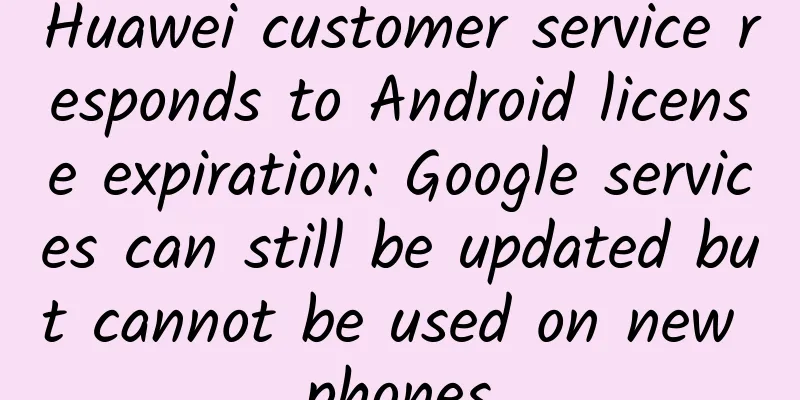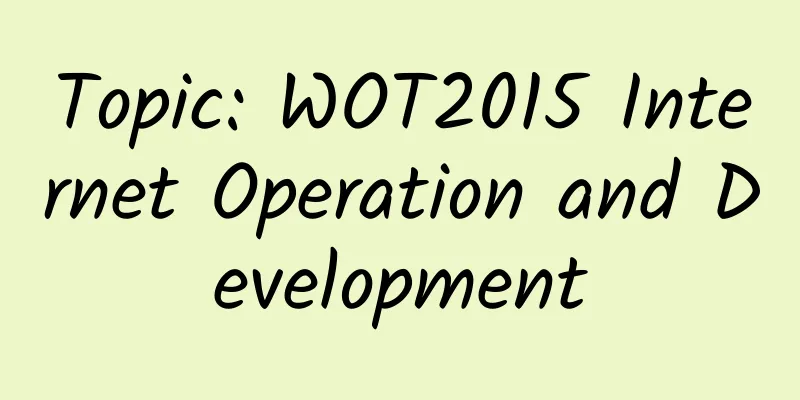Huawei customer service responds to Android license expiration: Google services can still be updated but cannot be used on new phones

|
According to foreign media reports, the temporary license provided by the U.S. Department of Commerce to Huawei expired on August 13. It is rumored online that Huawei's Android phones may not be able to be upgraded, and system updates and security patches cannot be upgraded. In this regard, some media contacted Huawei's consumer business customer service, who stated that for Huawei's mainland China version phones that have pre-installed GMS (Google Services), applications can still be downloaded and updated through other channels; however, newly released phones such as P40 and Mate 30 do not have GMS pre-installed and cannot use Google Play-related software. According to domestic media reports, Huawei responded that "Huawei will continue to provide system updates and security patches. All Huawei phones pre-installed with Google Play can still use the Play Store to download and update apps. Huawei phones without Google Play pre-installed can use AppGallery (Huawei's own app store) to get apps and security updates."
Although there are currently no major problems with the system, Huawei has encountered unprecedented difficulties with chips. On August 17, local time in the United States, the Bureau of Industry and Security (BIS) of the U.S. Department of Commerce issued a revised ban on Huawei, which took effect immediately. The ban further restricts Huawei's use of U.S. technology and software to produce products, and adds 38 Huawei subsidiaries to the entity list. The US Department of Commerce has added several new rules to the ban, such as: foreign products that use US technology or software as a basis and are used to produce or develop any parts, components, or equipment are prohibited. Huawei's related subsidiaries on the Entity List are also prohibited from doing the above. Huawei-related subsidiaries on the Entity List are also prohibited from playing the roles of purchasers, intermediate consignees, and final consignees. This means that it will be more difficult for Huawei to obtain chips. In May this year, the United States has upgraded its restrictions on Huawei. According to the regulations, starting from September 14, TSMC will no longer be able to produce chips for Huawei.
|
Recommend
One picture to understand | Fly × 16! See the journey of Shenzhou flying into space
Produced by: People's Daily x Dongdongmiao...
A detailed practical strategy for public account data operation
Over the years, how many WeChat public accounts h...
You cannot drink alcohol after taking cefuroxime, so how long after drinking alcohol can you take cefuroxime?
China's Spring Festival happens to be in the ...
Qualcomm CPU vulnerability found: 900 million Android devices worldwide affected
Information security research company Check Point ...
Can taking too much vitamins cause death? Learn more about vitamins in one article!
In November 1912, an expedition team consisting o...
Huang Shiming: Stop the inner war you started: Get rid of internal friction and gain a free life audio course
Huang Shiming: Stop the inner war you started: Ge...
Well-known new car company HiPhi Auto was exposed to layoffs, once claiming to beat Tesla and kick Porsche
Recently, some media and netizens broke the news ...
Elegant skeuomorphic progress bar control
Source code introduction: An elegant and fresh pr...
iOS Development - Multithreaded Synchronization
[[141566]] Hi, today I want to talk to you about ...
Saw off a leg in 90 seconds! Before anesthesia, surgery was a "speed race"?
Audit expert: Zhu Guangsi Member of Beijing Scien...
Meizu MX4 is the most sincere imitator of Apple
Meizu MX4 was launched. This mobile phone launch ...
How to advertise in Kuaishou short videos and what is the promotion effect?
Opportunities are reserved for those who are prep...
Zang Qichao-36 underlying logics of new business models
Course Catalog: ├──1-01 Why you must learn busine...
New media operations content competitor analysis skills!
In ancient times, when marching and fighting, the...









